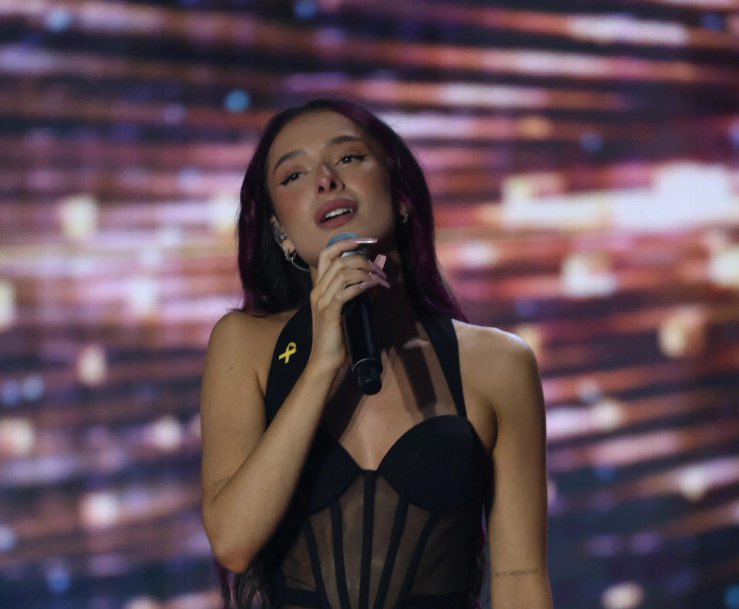The News
Israel has threatened to withdraw from this year’s Eurovision Song Contest if organizers decide to reject its entry amid wider calls for the country’s exclusion over its military campaign in Gaza.
The European Broadcasting Union is currently reviewing the lyrics of Israel’s entry, a song called “October Rain” by Russian-Israeli singer Eden Golan, which is thought to reference the victims of Hamas’ Oct. 7 attacks. If the EBU decides Israel has breached its rules by submitting content deemed political, the body will allow it to submit new lyrics or a new song.
Israel’s Public Broadcasting Corporation earlier said it has “no intention to replace the song” if it is not approved, warning that it will pull out of the contest scheduled for May in Malmö, Sweden. Israel’s culture minister has stated that while the song reflects “the current public sentiment in Israel these days,” that doesn’t make it “a political song.”
Israel became the first non-European nation to compete in Eurovision in 1973, and has since won the competition four times.
SIGNALS
Growing calls to exclude Israel from contest
More than 1,000 Swedish artists have signed a letter opposing Israel’s participation in the European song contest, accusing it of war crimes in its assault on Gaza. They join a growing chorus of voices including representatives for Palestinian artists in the U.K. who argue that allowing Israel to participate amounts to “a normalization of genocidal behavior,” Newsweek reported. Some other artists have said that banning Israel would “only further divide the world.” Art shows and film festivals have also faced increased scrutiny in recent months over their response to the Israel-Hamas war.. “We have to call them out,’” one protest organizer at Sundance Film Festival said to Vulture.
Political messages have been controversial at Eurovision before
“The truth is Eurovision has always been a contest infused with politics, and each year the EBU’s quixotic attempts to keep it out is a recurring losing battle,” a European politics reporter wrote in the International Politik Quarterly. Georgia withdrew from the competition in 2009 after refusing to change the lyrics to its entry, “We Don’t Wanna Put In,” a disco song that referenced Russian President Vladimir Putin, while Armenia was forced to change its song title after it was deemed to reference the 1915 Armenian genocide. Eurovision organizers also banned Russia from the competition after its full-scale invasion of Ukraine in 2022, while Ukraine’s entry by Kalush Orchestra went on to win the popular vote with the folk-rap group referencing the ongoing war in their victory speech.
Pro-Palestine protests have increased tensions over free speech in Europe
Thousands of people have joined pro-Palestinian demonstrations across Europe to demand a ceasefire, creating “a moment of catharsis that is related to the internal European identity in this generation,” one opinion writer said in Haaretz. Bans on Palestinian slogans and flags in Austria, Germany, France, and Britain have also prompted concerns about bias surrounding free speech and assembly laws across the continent, The Washington Post and The Guardian both reported.



